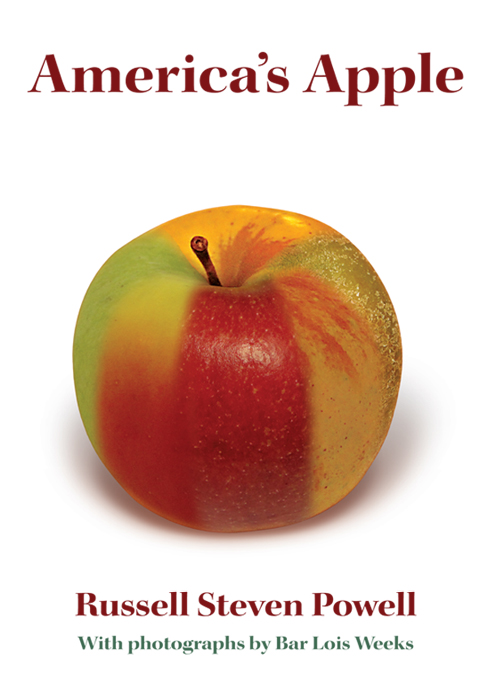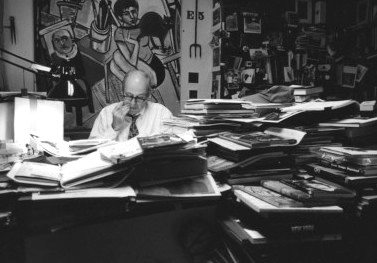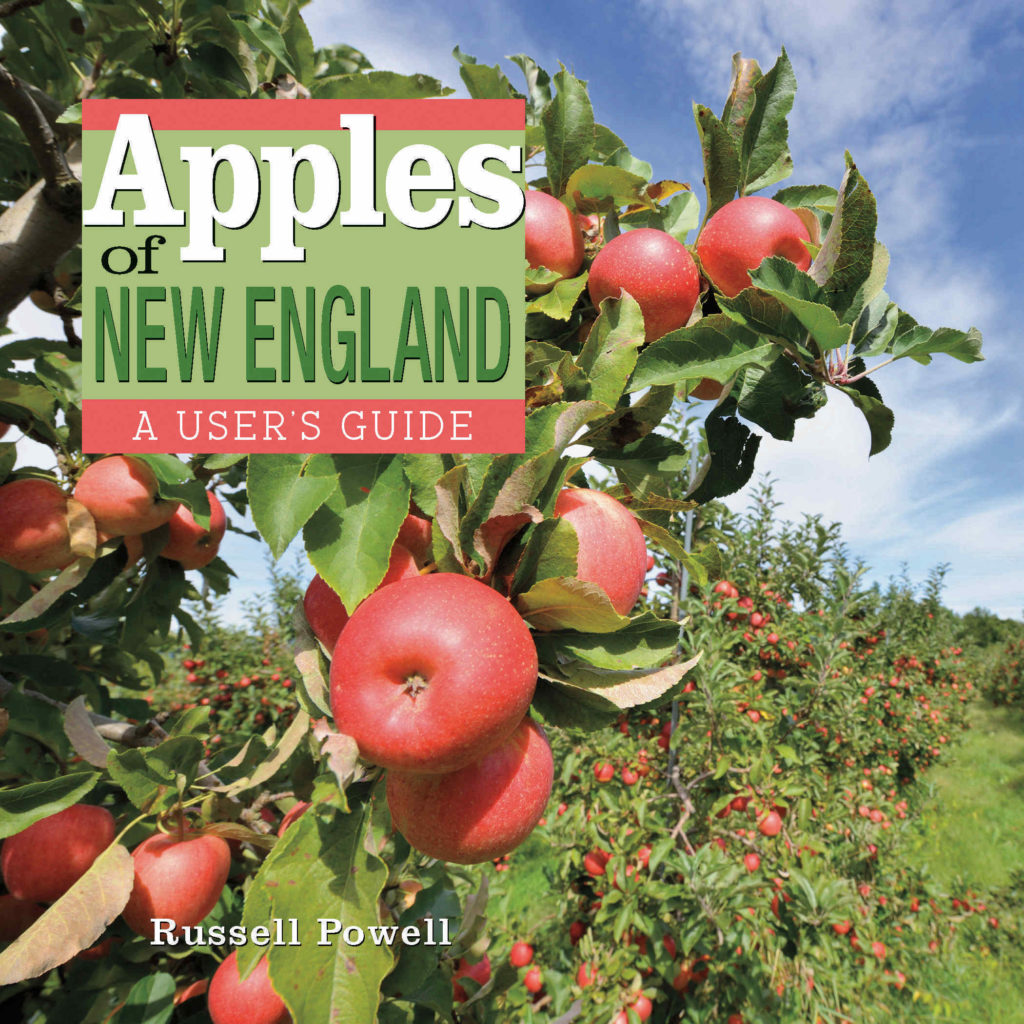THREE, acrylic on canvas, 16×16
MANY PEOPLE HAVE HELPED ME over the years, for which I am grateful. Sometimes aid has come from unexpected sources.
* * *

MY INITIAL IDEA for an apple book was an anthology of writing and artwork, to which I would contribute a single chapter and introduction. I had received verbal commitments from author Michael Pollan, illustrator Barry Moser (both of whom had contributed to my short-lived magazine, New England Watershed), and multimedia artist Rosamond Purcell, among others.
Rosamond, who I had only just met, was particularly gracious and helpful, calling Jim Mairs, her long-time editor at Norton and Co., while we were visiting in her studio. After a brief introduction, she handed me the phone. I felt unprepared answering Jim’s few, basic questions, but he invited me to submit a proposal.
Two months later, on a sunny morning in the spring of 2010, I boarded the train from Springfield to New York to meet Jim to discuss my anthology, in suit and tie.
I love New York. I don’t get there often, but I have eaten in many of its fine restaurants and visited many of its world-famous attractions.
I’ve run the 26.2-mile New York City Marathon from Staten Island to Central Park, through all five boroughs. I’ve walked the 12-hour, 32-mile Great Saunter around Manhattan’s perimeter. I’ve shown paintings in Chelsea.
But it was something altogether different to be ushered into the offices of a major publisher on Fifth Avenue. I mentally rehearsed my lines for the umpteenth time going up in the elevator, hoping to conceal or channel my nervousness when I finally met my editor.
* * *

I WAS ANNOUNCED by a receptionist behind glass doors and wall, and after a brief wait in the carpeted foyer, Jim came out. He was 70, looking distinguished and projecting a kind but serious manner.
We shook hands and, passing by the door of his cluttered office, we exchanged a few pleasantries before heading down a narrow hallway to a simple meeting room with just a table and two chairs.
He carried his copy of my proposal beneath his arm and spread its ruffled prose and artwork across the white tabletop as we sat opposite each other, my back to the door.
He then looked up at me and said, simply, “No one reads anthologies.”
I was stunned. I kept my composure but was inwardly shaking. My project killed before I’d even had a chance to make my pitch!
I felt my face redden, but I nodded and did my best to listen as he explained that in his experience people did not buy anthologies on the strength of their contributors. Readers much preferred a single narrative from a single voice.
I was just regaining my focus when, after a pause, he ended as succinctly as he began: “Why don’t you write the book?”
Stunned again! I had such confidence in the apple anthology that the idea of writing the entire book had never occurred to me.
I had to quickly get over my surprise. We kept talking, and after some discussion, I agreed to write the book that eventually became America’s Apple, published by Brook Hollow Press.
My corporeal self rode the train, but mentally I flew home. The idea of taking on such a big (and new) project was exciting but daunting. It took me most of the summer to get used to it.
* * *
DESPITE JIM MAIRS’S ADVOCACY, I never did get to publish that first book with him. He was voted down by a new, younger generation of editors at Norton and Co. who felt my proposal was too sprawling and ambitious for one person.
Indirectly, though, Jim helped me get published by Norton. I sent America’s Apple to Countryman Press, a division of Norton and Co., then-based in Woodstock, Vermont. They liked it enough to publish my next book, Apples of New England.


I am so glad that you shared this story with us, Russell. I remember large pieces of it, but you rekindled the memory. I am proud to have a copy of “America’s Apple” on my bookshelf and recall your presentation at the Maine Historical Society. What a rich life you have with more to come!
Thank you for the lovely comment, Elena! In many respects, I have lived a charmed life. I hope to give something back.
I gave America’s Apple to Libby and George Pataki for Christmas the year it came out. (Libby is my sister and George grew up on his Hungarian grandparents’ apple farm on the banks of the Hudson. They now have a small apple orchard on the New York side of Lake Champlain.) They just loved this small treasure of a book. The following Christmas my gift from them was A History of the Connecticut River by Wick Griswold.
That’s a great story, Christine! I am so glad George and Libby liked it–especially after its humble beginnings.